People
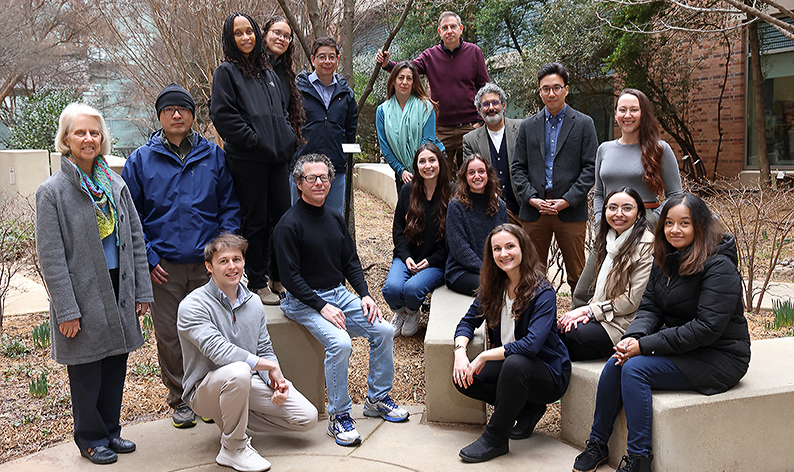
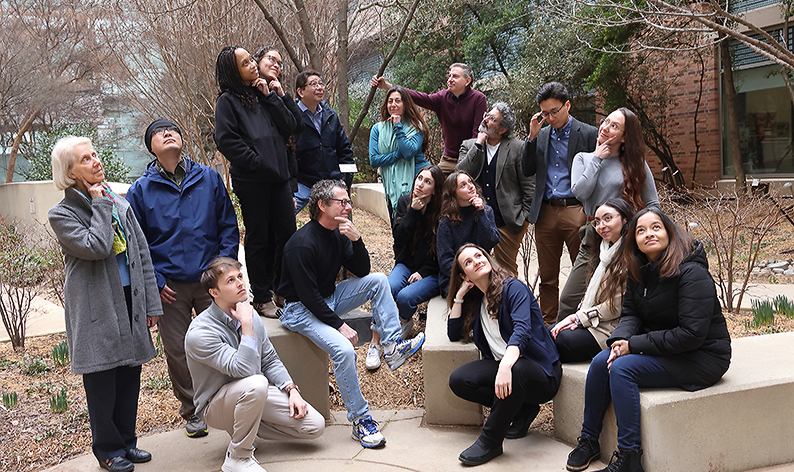
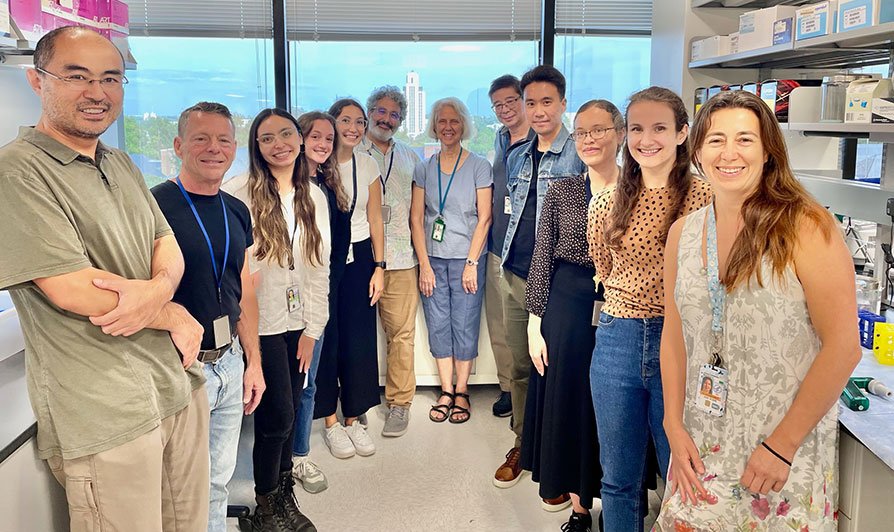

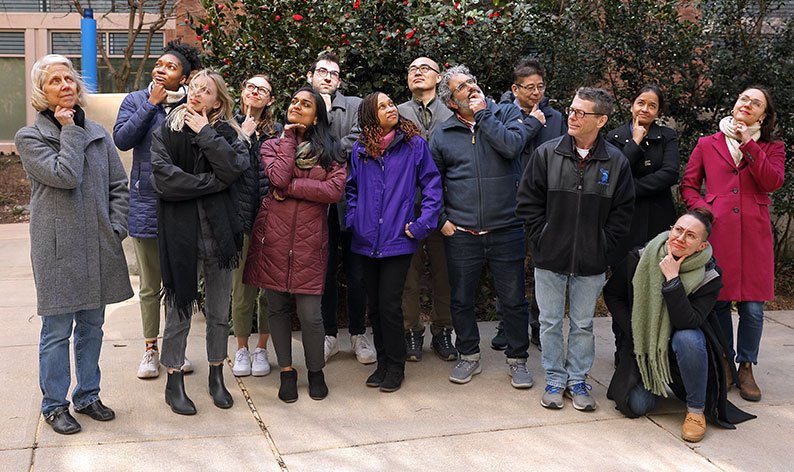
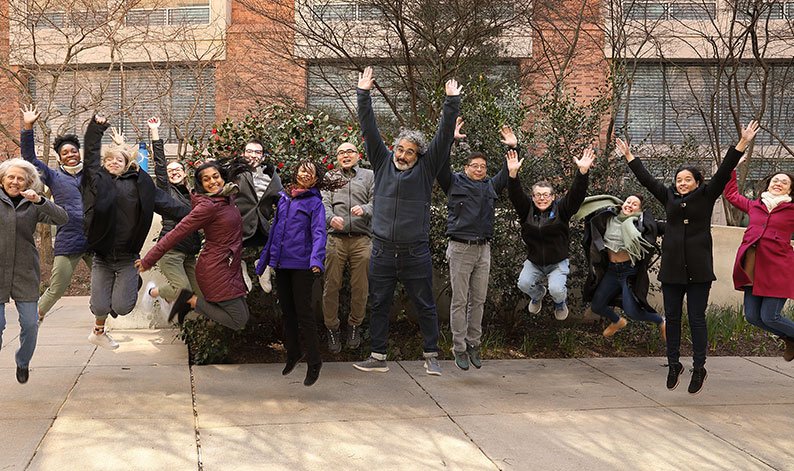
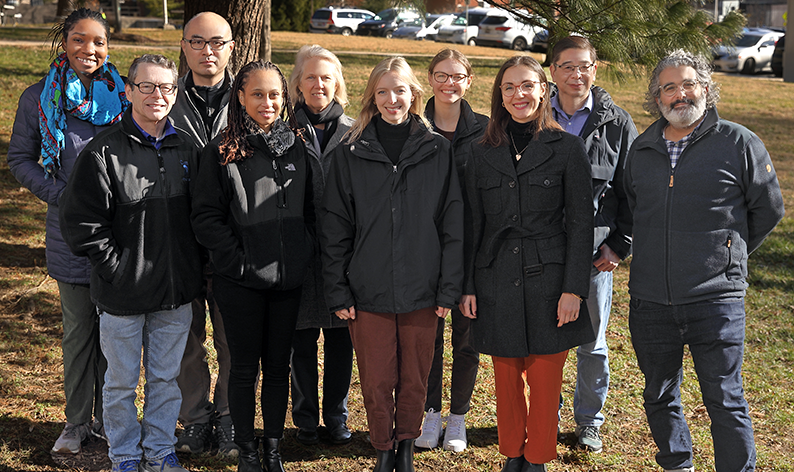
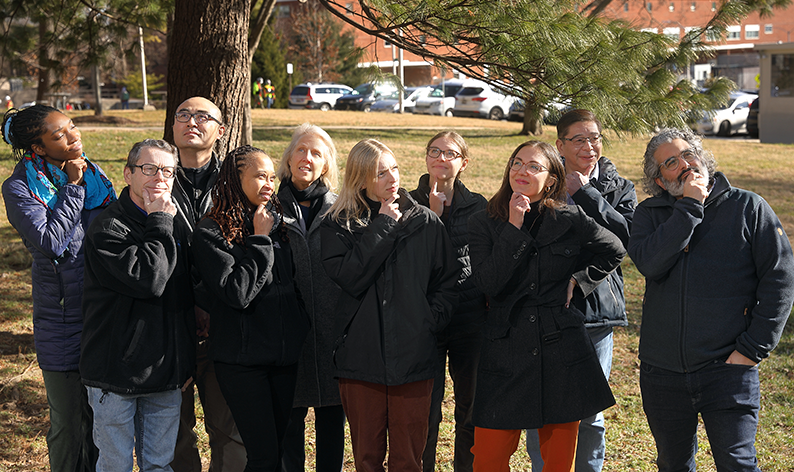
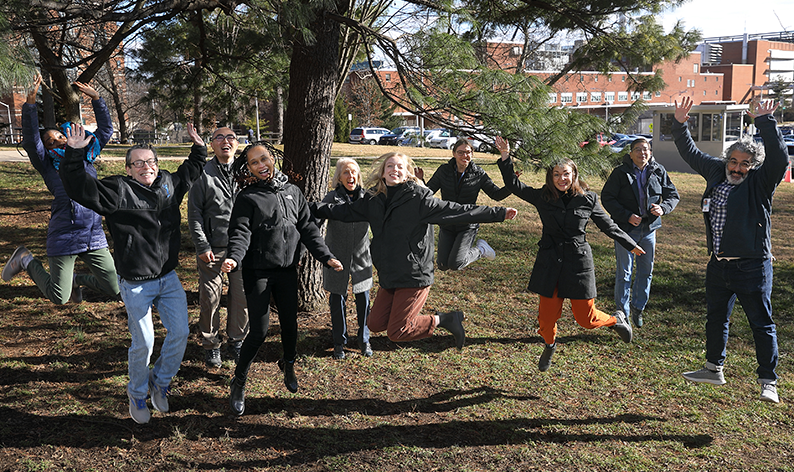
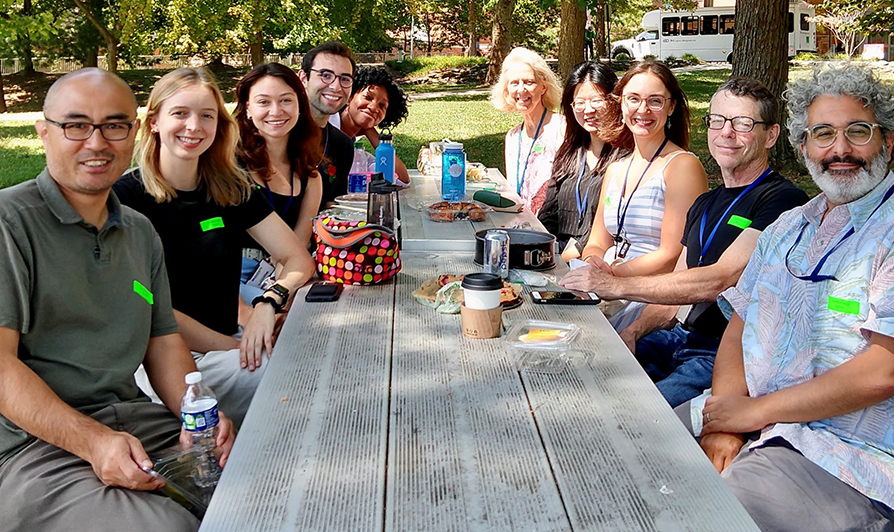
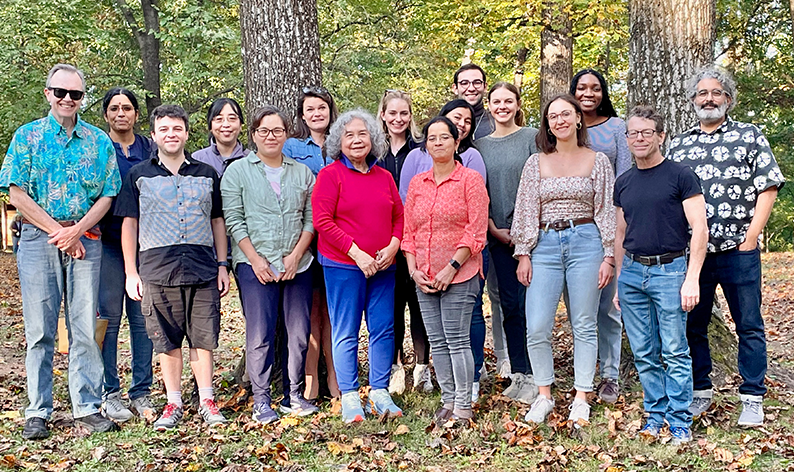
Current Lab Members

Liv Clasen, PhD, is a graduate of the Clinical Psychology program at The George Washington University. She is the Data Manager for the Section on Developmental Neurogenomics.

Gabi Dugan, BS, is a PhD student in the NIH OxCam program. She graduated from Virginia Tech in 2022 with a major in Biological Systems Engineering. During this time, she got involved with research, working on projects studying biodiversity in ant communities and cellular atlasing initiatives for rhesus macaques. After her undergraduate studies, she joined the NIMH as a post-bac IRTA in the Human Genetics Branch. In this position, she completed a project studying the transcriptomic impacts of nine high-risk neuropsychiatric copy number variants (CNVs) across cell types in the human brain. Her PhD will be a collaboration between Dr. Armin Raznahan and Dr. Jason Lerch (Oxford), where she will investigate the intersection of sex- and CNV-effects to understand how they modulate risk for neuropsychiatric disorders.

Lauren Kenworthy, PhD, is Director of the Center for Autism Spectrum Disorders at Children’s National Hospital and has been collaborating with the Section on Developmental Neurogenomics as a contractor since 2018. She received a BA from Yale University and PhD from the University of Maryland. She completed her internship and residency training in clinical psychology/pediatric neuropsychology at Harvard Medical School, Children's Hospital Boston, Johns Hopkins Medical School and Mount Washington Pediatric Hospital. She has been on the faculty at Children’s National and GW since 1995. Dr. Kenworthy's research interests are in describing and treating the neuropsychological phenotype of autism. She is an author of more than 60 peer-reviewed publications documenting non-social deficits in autism and is a co-author of the Behavior Rating Inventory of Executive Function (BRIEF). Her recent publications have focused on the role of executive dysfunction in autism and its treatment. She is author of a school-based, executive function intervention for children on the autism spectrum, Unstuck and On Target.

François M. Lalonde, PhD is a Staff Scientist working on the advancement of MRI neuroimaging methods and technologies that can be applied to study brain development and decline through the lifespan. Majoring in psychobiology, he graduated with distinction from McGill University, and then obtained an MA from The George Washington University and his PhD from Howard University, both in neuropsychology. He is a licensed psychologist with expertise in geriatric as well as pediatric neuropsychological assessment. After 30 years of service, Dr. Lalonde retired this past year from the Commissioned Corps of the United States Public Health Service at the rank of Captain.

Hyo Lee, PhD, is a Postdoctoral Fellow in the Section on Developmental Neurogenomics. He completed his PhD in Neuroscience from McGill University under the supervision of Profs. Andrea Bernasconi and Neda Ladbon-Bernasconi. His doctoral research combined multimodal MRI, machine learning, and multiscale biology to understand inter-individual variability in brain anatomy as well as developmental and degenerative processes underlying common epilepsies, namely focal cortical dysplasia and temporal lobe epilepsy. Building upon this experience, Hyo’s current work in the section investigates sex differences in the human brain organization, how these differences are influenced by the sex chromosomes and hormones, and how sex differences in brain organization contribute to sex differences in vulnerability to developmental and psychiatric conditions.

Marcela Legue, MD, PhD, is a child neurologist and researcher with a long-standing lifework in neurodevelopment and neurogenetics. She joined the Section of Developmental Neurogenomics in 2023, aiming to help better understand new aspects of gene regulation and epigenetics of brain development. Her work currently uses a multi-omics approach for identifying factors underlying neurodevelopmental phenotypes in individuals with gene dosage differences in sex chromosomes. Dr. Legue holds a Masters in early child development intervention from the Universidad Complutense de Madrid, Spain. She specialized in Child Neurology at the Universidad de Chile and graduated with a PhD in Integrative Genomics from the Universidad Mayor, Chile.

Elizabeth Levitis, MSc, studied Cognitive Science and International Development during undergrad and subsequently completed a Masters in Neuroscience at McGill University. Her MSc thesis focused on data-driven modelling of amyloid beta spread in familial and sporadic Alzheimer's disease. She joined the Section on Developmental Neurogenomics in July 2020 as a PhD candidate in the UCL-NIMH Joint Doctoral Training Program in Neuroscience, jointly supervised by Dr. Armin Raznahan and Dr. Daniel Alexander. Her research uses multimodal neuroimaging data to understand how spatial patterns of altered brain networks emerge across multiple phenotypic features in both neurogenetic and idiopathic neurodevelopmental disorders. This work will help clarify the degree of redundancy between different measures of brain change, and it will generate new multimodal phenotypes that can then be related to the underlying biology (e.g. regional gene expression patterns) and clinical features (e.g. variation in symptom severity).

Zhixiang Liao, M.S., is the Wet Lab Manager in the Section of Developmental Neurogenomics. He received his M.S. in Pharmaceutical Analysis from National Institutes for Food and Drug Control in China in 2000. He has more than 20 years of experience in functional genomics and molecular biology research. He joined the lab as a Senior Biologist in November 2022. Currently, his work aims to investigate genetic risk factors and differential genes in patient-derived iPSC models of Sex Chromosome Aneuploidy.

Siyuan Liu, PhD is a Staff Scientist in the Section on Developmental Neurogenomics. He received his PhD in bioengineering from the University of Illinois at Chicago. With a focus on neuroimaging, he completed postdoctoral training at the University of California, San Francisco and a research fellowship at NIDCD. He is interested in studying the typical development of brain structures and functions, and abnormal changes in X and Y chromosome aneuploidies, and how these abnormalities are associated with clinical symptoms and genetic factors.

Siena Mollerstuen, BA, graduated from the University of Rochester in 2025 with majors in Psychology and Brain and Cognitive Science, and a minor in Spanish. While at the University of Rochester, she conducted research investigating in audiovisual perception in people with autism spectrum disorder and other neurodevelopmental disabilities. Her senior honors thesis focused on using virtual reality to measure the effect of audiovisual integration in naturalistic environments. Siena joined the Section on Developmental Neurogenomics as a post-baccalaureate IRTA in June 2025. In the future, she hopes to pursue a PhD in Clinical Psychology.

Adam Pavlinek, PhD, is a Postdoctoral Fellow in the Section on Developmental Neurogenomics. He completed his undergraduate studies in the Department of Physiology, Development and Neuroscience at the University of Cambridge, followed by an MRes in Neurodevelopmental Disorders and PhD in Developmental Neurobiology at King’s College London under the supervision of Prof. Deepak Srivastava. During his doctoral work, he used iPSC-derived neural organoids to study the effects of estradiol and sex differences on synapse development. Building on this work, Adam plans to combine patient-derived iPSC organoid models and multi-omics approaches to identify cellular and molecular factors underlying neurodevelopmental phenotypes in individuals with sex chromosome aneuploidies.

Linh Pham, BS, completed her undergraduate studies at Humboldt State University and postbaccalaureate training at the NIH. Throughout this period, Linh worked on several research projects that trained her in molecular biology techniques and principles of data analysis. She is currently an MD-PhD student in the NIH OxCam Program and UT Health San Antonio MSTP. Linh’s graduate work will investigate how structural covariance is formed in the brain. This work will be supervised by Dr. Armin Raznahan and Professor Jason Lerch (Oxford).

Srishti Rau, PhD, is a pediatric neuropsychologist at Children's National's Center for Autism Spectrum Disorders and has been collaborating with the Section on Developmental Neurogenomics as a contractor since 2018. Dr. Rau received a B.S. from Duke University and PhD in clinical psychology from the Catholic University of America. Her dissertation research focused on social and communication symptoms in individuals with autism spectrum disorders (ASD) without intellectual disability. She completed internship training in pediatric neuropsychology/clinical psychology at the Kennedy Krieger Institute in Baltimore, Maryland, and completed a postdoctoral fellowship in pediatric neuropsychology at Children's Center for Autism Spectrum Disorders. Dr. Rau’s clinical and research work focus on presentation of ASD in children and adolescents with co-occurring medical conditions (e.g., genetic diagnoses, epilepsy).

Armin Raznahan, MD, Armin Raznahan, MD, PhD, is a child and adolescent psychiatrist, and Chief of the Section on Developmental Neurogenomics (SDN). His research combines neuroimaging, genomic and bioinformatic techniques to better understand the architecture of human brain development in health, and in neurogenetic disorders that increase risk for psychiatric symptoms. Dr. Raznahan completed his undergraduate and graduate training in London, UK (Medicine and pediatrics at King’s College University/ Hospital; psychiatry and the Maudsley Hospital), and then trained as a postdoctoral fellow with Drs. Jay Giedd and Judith Rapoport at the NIMH Intramural Research Program. Dr. Raznahan joined the NIH-Lasker Clinical Research Scholars Program in 2015, and became a tenured Senior Investigator at the NIMH IRP in 2020.

Shara Reimer, Shara Reimer, BA, graduated from Northwestern University in 2024 with a major in Cognitive Science and minors in Data Science and Human Communication Sciences. At Northwestern, Shara worked in the Neurodevelopmental Disabilities Lab and completed a senior honors thesis on narrative ability in individuals with autism spectrum disorders and lower verbal IQs. Shara has also worked extensively with the McPartland Lab at the Yale Child Study Center, where she studied biomarkers associated with autism. Shara joined the Section on Developmental Neurogenomics as a postbaccalaureate IRTA in July 2024. In the future, she hopes to pursue a PhD in Clinical Psychology and work as a pediatric clinical neuropsychologist.

Rebecca Shafee, PhD, is a Research Fellow in the Section on Developmental Neurogenomics. Rebecca Completed her BS at Caltech and PhD at Harvard - both in physics. For her PhD thesis she developed ways to measure how fast black holes spin. At the postdoctoral level her research focused on neuroscience and genetics. As a Swartz Fellow at the Center for Brain Science, she worked in Randy Buckner's group to better understand the myelination pattern of the human cerebral cortex. As a postdoctoral fellow at the Broad Institute and Harvard Medical School she used statistical genetics to better understand the genetic basis of psychiatric disorders such as schizophrenia. Linking the genome to brain anatomy and function in healthy as well as diseased individuals remains the focus of her research interest at present and at SDN she is excited to investigate the genetic basis of sex differences in the human brain using statistical genetics tools.

Jyssica Seebeck, PhD, is a pediatric neuropsychologist at Children's National Center for Autism Spectrum Disorders and has been collaborating with the Section on Developmental Neurogenomics as a contractor since 2024. Dr. Seebeck received her BS from Brigham Young University and a PhD in clinical psychology from Seattle Pacific University. She completed her internship and residency training in pediatric neuropsychology/clinical psychology at the Pennsylvania State University Hershey Medical Center. Dr. Seebeck's clinical and research work focuses on the presentation of autism and neurodevelopment in infants, toddlers, children, and adolescents with co-occurring medical conditions (e.g., genetic diagnoses, congenital heart disease).

William Snyder, BS, is an NIH Gates Cambridge Scholar and Psychiatry PhD candidate. He completed his undergraduate neuroscience degree at Bucknell University, where he began researching neuropsychiatric disorders using human brain imaging. As part of the NIH Oxford-Cambridge Scholars program, he is pursuing a jointly mentored thesis with Drs. Armin Raznahan and Ed Bullmore (Cambridge). He hopes to improve models of brain organization in health and in genetic brain disorders by linking human brain function to novel assessments of brain folding.

Erin Torres, DNP, MSN, CRNP-PMH is a Family Psychiatric Nurse Practitioner who completed her Doctor of Nursing Practice degree at the University of Cincinnati. She received her bachelor’s degree from Hampton University in May 2002 and her master’s degree from the University of Maryland, Baltimore in May of 2014. Prior to joining the SDN she worked as a clinical research nurse on the pediatric behavioral health unit at the National Institutes of Health’s Clinical Center. Most of her nursing career has been in various psychiatric settings, but she also has experience working in the emergency department and in pediatrics. She currently conducts physical exams and psychiatric assessments for the Section on Developmental Neurogenomics.
Alumni

Tiffany Ajumobi, BS, graduated from Yale University in 2021 with a major in Neuroscience. While at Yale, she completed a senior’s thesis on the interaction of astrocytes and microglia during various forms of cell death in the brain. Tiffany joined the Section on Developmental Neurogenomics as a post-baccalaureate IRTA under the NIH Academy Enrichment Program in September 2021. She will be pursuing a medical degree at The Johns Hopkins School of Medicine.

Noemi Banda, BA, graduated from the University of Colorado Boulder in 2020 with a major in Integrative Physiology. While at CU Boulder, she researched the impact of metacognitive strategies in chemistry classrooms. Noemi joined the SDN under the OITE Postbac Enrichment Program (OITE-PEP) as a post-baccalaureate IRTA in July of 2023. In the future, she hopes to pursue research in a PhD program.
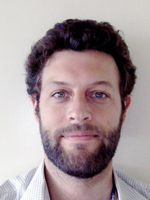
Aaron Alexander-Bloch MD, PhD, studied philosophy of mind at Harvard College and completed a Masters in computational biology at the University of Cambridge. His MD/PhD training was a collaboration between the UCLA School of Medicine, the University of Cambridge, and the Child Psychiatry Branch at NIMH, through the NIH-Oxford-Cambridge Scholars Program. His PhD research used structural and functional magnetic resonance imaging to study typical development and childhood-onset schizophrenia, with a particular focus on network models of the brain and structure-function relationships. At Cambridge, he was supervised by Prof Ed Bullmore. At NIMH, he was supervised by Jay Giedd and collaborated closely with Armin Raznahan. Currently a psychiatry resident at Yale in the Neuroscience Research Training Program, he continues to be interested in brain imaging and the application of computational methods to psychiatry.

Jonathan Blumenthal, MA, is a Research Psychologist. His degree is from the University of Pittsburgh, where he was the Project Coordinator for several alcohol, drug, and ADHD studies. He came to the NIMH in 1997 to oversee the collaboration with Montreal Neurological Institute, which focused on automated measures of brain anatomy using MRI. He then became the Project Coordinator of the Study of Sex Chromosome Variations, including Klinefelter Syndrome and Trisomy X Syndrome, that explored the effects of chromosomes on brain development. He was the Research Coordinator for the Section on Developmental Neurogenomics, and now enjoying retirement after 28 years of service at NIMH.

Prableen K. Chowdhary is an undergraduate student at the University of Maryland, College Park obtaining a dual degree in neurobiology and biochemistry. She is a part of the Gemstone Honors Program on a 10-member team researching hematopoietic stem cell differentiation from induced pluripotent stem cells. She spent Summer 2016 as a student intern in The Developmental Neurogenomics Unit of the Child Psychiatry Branch. Prableen hopes to pursue a PhD in neuroscience and research neurodegenerative disorders and mental illnesses.

Alex DeCasien, PhD, is currently the Principal Investigator of the Computational and Evolutionary Neurogenomics (COEVOLviNG) Unit in the National Institute on Aging (NIA). She received her PhD in Biological Anthropology from New York University and prior to her three year Postdoctoral Fellowship in the SDN. Her research integrates phylogenetic comparative methods, neuroimaging, and bioinformatics to illuminate the patterns and evolutionary drivers of brain variation in humans and nonhuman primates. Currently, her research is focused on identifying the mechanisms underlying sex differences in brain aging and related diseases.

Alexander Denker, Ph.D. returned to NIMH in 2019 to serve as a Scientific Policy Analyst in the Extramural Policy Branch. Dr. Denker completed his doctoral training in Psychology with a concentration in Neuroscience and Animal Behavior at Emory University. Prior to his Post-Baccalaureate IRTA position, Dr. Denker graduated from New York University’s Gallatin School of Individualized Study with a concentration in “The Neuroscience of Art,” building his concentration by combining the coursework of a neuroscience major with courses in the cultural theory of art and music.

Ari M. Fish, MD, was an IRTA in the Developmental Neurogenomics Unit from 2015-2017. During his time at the NIH, he worked on multiple projects, including an examination of sex chromosome dosage on gyrification of the human cortex, and an analysis of amygdalo-hippocampal development in healthy adolescents. Since, Ari completed medical school at the Sidney Kimmel Medical College at Thomas Jefferson University. He is currently an Internal Medicine resident at the Icahn School of Medicine at Mount Sinai.

Elisa Guma, PhD, is a postdoctoral fellow in the Section on Developmental Neurogenomics. She received her PhD in Neuroscience from McGill University. During her doctoral studies she investigated how exposure to both prenatal and adolescent risk factors for neurodevelopmental and psychiatric disorders, namely gestational exposure to maternal infection and adolescent cannabis exposure, affect brain development. She leveraged longitudinal structural magnetic resonance imaging, behavioral, and transcriptional phenotyping in mice to investigate the questions. Currently, her work aims to characterize the effect chromosome dosage on human and mouse brain development.

Alli Hanley, PhD learned a new skillset working on several neuroimaging projects, including a novel use for magnetization transfer imaging and writing the first quantitative study of brain matter in 48, XXYY syndrome. The latter study was presented at the Society for Neuroscience 2015 conference and was published in NeuroImage: Clinical. After leaving the Branch, she hiked the Appalachian Trail, completed an MHS at Johns Hopkins University, and a PhD in Epidemiology at the University of Maryland. She is currently a member of the CDC’s Epidemic Intelligence Service in the National Center on Birth Defects and Developmental Disabilities, Division of Human Development and Disability.

Claire Hanson, BA, graduated from Vanderbilt University in 2021 with a major in Neuroscience and a minor in French. Her senior thesis investigated computational models of the firing dynamics of decision-making neurons. Claire joined the SDN as a post-baccalaureate IRTA in June of 2021. She will return to Vanderbilt University to pursue an MD-PhD.

Jehan Idsassi, graduated from the Science and Technology Program at Eleanor Roosevelt High School in 2024 and is a rising freshman at Johns Hopkins University pursuing a Bachelor’s degree in neuroscience on the pre-medicine track. During her senior year of high school, Jehan interned at the University of Maryland, College Park in the Araneda Laboratory, where she was mentored by PhD candidate Ms. Lucy Irvine, to conduct a research practicum project on assessing the efficacy of Simple Behavioral Analysis (SimBA) in analyzing the influence of sex and age on behavioral repertoire in wild-type c57 mice. She joined the lab as a high school summer intern in May of 2024. In the future, Jehan hopes to pursue a Doctorate of Medicine (MD) and aspires to become a neurosurgeon.

Isabella Larsen, BA, graduated from Duke University in 2023 with majors in Psychology and Public Policy. Bella was a post-baccalaureate IRTA in the Section on Developmental Neurogenomics from 2023 to 2025. During her time with the SDN, she worked on several research projects related to sex chromosome dosage effects on psychopathology and cognition and analyzed X chromosome parent-of-origin effects on behavior and neuroanatomy. She also enjoyed working with children and young adults with Trisomy X, their families, and healthy volunteers as part of the SDN. She is currently pursuing a PhD in Clinical Psychology at the University of Virginia.

Amy Lin graduated from Colorado College with a BA in Neuroscience in 2012. While at the Child Psychiatry Branch, Amy published a paper with Dr. Armin Raznahan that mapped brain asymmetry in people with sex chromosome aneuploidies. She presented the work at the Organization for Human Brain Mapping conference in Hamburg, Germany. She is currently in a PhD program in Neuroscience at UCLA.

Bridget Mahony, BS, graduated from Emory University in 2020 with a double major in Neuroscience & Behavioral Biology and French Studies. She was a Post-baccalaureate Fellow in the Section on Developmental Neurogenomics from 2020 to 2022, where her research focused on sex differences in task fMRI data and the influence of cognitive ability on co-occurrence of psychiatric symptoms. She is currently working in industry as a data scientist.

Travis Mallard, M.A., is a doctoral candidate in the Clinical Psychology program at the University of Texas at Austin, where he studies the genetic architecture of serious mental illnesses and related complex traits. In May 2019, he joined the Section on Developmental Neurogenomics as a Special Volunteer in order to pursue genetic research on neurodevelopment and brain morphology. After completing his clinical internship in 2021, Travis plans to continue his research, integrating statistical, psychiatric, and imaging genetics to yield novel insights into the pathogenesis of psychopathology.

Catherine M. Mankiw, AB, is a 2014 graduate of Princeton University with a major in Economics and a cross-disciplinary minor in Ethics. She was a Post-Baccalaureate Research Fellow in the Developmental Neurogenomics Unit of the Child Psychiatry Branch. Catherine is currently at Harvard Medical School.

Maya Mastronardo, BS, graduated from Towson University in 2021 and joined the SDN as a post-baccalaureate IRTA in our wet lab from 2021 until 2023. As part of the SDN, Maya helped with the generation and characterization of induced pluripotent stem cell and neural progenitor cell lines derived from our patient samples and worked on downstream projects with these cell lines. She is currently pursuing a PhD in Cell, Molecular, Developmental Biology and Biophysics at Johns Hopkins University.

Cassidy McDermott, BA, graduated from Dartmouth College in 2017 with a major in Neuroscience and minors in Education and Spanish. She was a Post-Baccalaureate IRTA in the Developmental Neurogenomics Unit from 2017 to 2019. While at the DNU, Cassidy worked with children with Klinefelter Syndrome and conducted research on environmental effects on brain development, as well as white matter structure variation in typical development. She is currently pursuing a Ph.D. in Clinical Psychology at the University of Pennsylvania.

Ajay Nadig, B.A. is a 2017 graduate of Northwestern University with majors in Neuroscience and Philosophy. He worked as a Post-Baccalaureate Fellow in the Developmental Neurogenomics Unit from 2017 to 2019, where he worked with children with Klinefelter’s Syndrome and conducted research on brain morphology in health and genetic disease. He is presently enrolled in the joint M.D./Ph.D. program at Harvard Medical School and the Massachusetts Institute of Technology.

Femi Olorunfemi, BS, graduated from Coppin State University in 2019 with a major in Biology, with a Senior Thesis on the impact of Caffeine on ATP Levels of Neural Retina Exposed to Reactive Oxygen Species. Currently pursuing a master's degree in bioinformatics at the University of Maryland Global Campus, Femi blends his expertise in Biology with advanced computational techniques. As an active member of the Nation Institute of Science and an officer in the Medical Service Corps, Femi exemplifies dedication to both scientific exploration and community service. Eager to contribute to cutting-edge research, Femi joins the SDN as an IRTA in June 2024.

Melissa Roybal, BA, graduated from Vassar College in 2023 majoring in Psychological Science. While at Vassar, she studied developmental behavioral trends as they relate to perceived peer presence and levels of interpersonal and institutional trust. Melissa joined the Section on Developmental Neurogenomics as a post-baccalaureate IRTA in June 2023. In the future, she hopes to pursue a PhD in Clinical Psychology.

Luke Schaffer, BS, graduated from the University of Pittsburgh in 2021 with majors in Biological Sciences and Psychology. He was a post-baccalaureate IRTA in the SDN from June 2021 to June 2023, where he worked with individuals with Trisomy X syndrome and their families. During his fellowship, Luke researched the shared and unique effects of altered sex chromosome dosage on cognitive, behavioral, & psychiatric features in youth. He is currently pursuing his PhD in Clinical Psychology at the University of Colorado Boulder.

Jakob Seidlitz is a postdoctoral fellow at the University of Pennsylvania and Children’s Hospital of Philadelphia, working with Aaron Alexander-Bloch. He spent his time at the DNU during his PhD in the NIH Oxford-Cambridge Scholars Program, jointly supervised by Armin Raznahan and Ed Bullmore (Cambridge). His work, focused on integrating non-invasive neuroimaging (MRI) with transcriptomics/genomics, spanned normative childhood and adolescent development and rare neurogenetic syndromes (e.g., sex-chromosome aneuploidies).

Melanie Staszewski, BS, graduated from Salisbury University in 2022 with a major in Biology and a minor in Chemistry. After graduating, she conducted research in Poland as a 2022-23 Fulbright U.S. Student Program grantee. She joined the Section on Developmental Neurogenomics as a post-baccalaureate fellow from 2023 to 2025. Melanie helped with the next-generation sequencing of induced pluripotent stem cells derived from patient samples, as well as the computational analysis of DNA methylation data. She is currently pursuing a PhD in Cell and Molecular Biology at the University of Pennsylvania.

Kathryn Tsai, BS, graduated from Villanova University in 2020, majoring in Computer Engineering and Comprehensive Science with a focus in Biomedical Informatics. While at Villanova, she completed her senior thesis on the hemodynamic effects of short-term augmented cognition. She also worked on a meta-analysis of expressive quantitative trait loci (eQTLs), studying mechanistic hypotheses, gene locus architecture, and single-cell methods. Kathryn joined the Section on Developmental Neurogenomics as a post-baccalaureate IRTA in the summer of 2020. In the future, she hopes to become a physician-scientist.
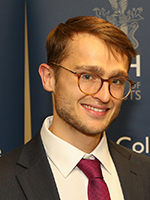
Konrad Wagstyl is a Senior Lecturer in Biomedical Computing at KCL and Honorary Associate Professor at UCL's Great Ormond Street Institue for Child Health. He leads the IMAGINE lab working on Imaging, Machine learning And Genetics In Neurodevelopmental Epilepsies. As part of his work, Konrad co-founded the Multicentre Epilepsy Lesion Detection project (MELD), an international consortium creating the MRI datasets and AI tools to better understand, diagnose and treat children and adults with epilepsy.

Allysa Warling, BA, graduated from Colorado College in 2019 with a degree in Neuroscience. She was a Post-Baccalaureate Fellow in the Section on Developmental Neurogenomics from 2019 to 2021, where she worked with children with Klinefelter’s Syndrome and studied neuroanatomical structures in both psychiatric disease and typically-developing cohorts. She is currently pursuing an MD at Harvard Medical School.

Anastasia Wass, BA, graduated from Carnegie Mellon University in 2022 majoring in Psychology with minors in Hispanic and German Studies. She completed a Post-Baccalaureate Pre-Medical Certificate at Johns Hopkins in 2023. She joined the SDN as an IRTA in June of 2023. She is currently at the Georgetown University School of Medicine.

Ethan Whitman graduated from Tufts in 2019 and joined the SDN as a post-baccalaureate IRTA from 2019 until 2021. At the SDN, Ethan researched alterations in brain function in youth with Klinefelter syndrome and worked with children with various sex chromosome aneuploidies. He is currently pursuing a PhD in Clinical Psychology at Duke University.

Kathleen Wilson, BA, graduated from Middlebury College in 2019 with majors in Neuroscience and Spanish. She was a post-baccalaureate fellow in the Developmental Neurogenomics Unit from 2019 to 2020. During her time at the DNU, she enjoyed working with children and adolescents with Klinefelter Syndrome and their families. She also conducted research on the use of familial cognitive and behavioral traits to predict trait outcomes in individuals with neurogenetic disorders. Kathleen is currently pursuing an MD at the Geisel School of Medicine at Dartmouth.

Anastasia G. Xenophontos, BS, is 2016 graduate of the University of Michigan with a major in Biopsychology, Cognition, and Neuroscience. She spent the past two years as a Post-Baccalaureate Research Fellow in the Developmental Neurogenomics Unit conducting research on sex chromosome dosage effects on cortical morphology. Anastasia is currently at Georgetown University School of Medicine.

Mani Yavi, MD, is currently a psychiatry resident at Saint Elizabeths Hospital, with a strong background in scientific research. His interests in neuroscience have led him to seek mentorship at NIH in Dr. Raznahan’s lab, where he is applying bioinformatics models to large longitudinal neuroimaging datasets to determine white matter variations and neural tract impacts of sex-differences, allometry, and structure-function relationships within the central nervous system. Mani completed his bachelors at UC Berkeley with a dual degree in Molecular and Cellular Biology and Studio Art. Prior to medical school, he was doing research at UCSF on the genetics of eye development and the optico-neural circuits. Mani graduated from SUNY Upstate Medical University and completed a year of internal medicine there before moving to Washington DC, where he plans on pursuing a career in academic psychiatry.

